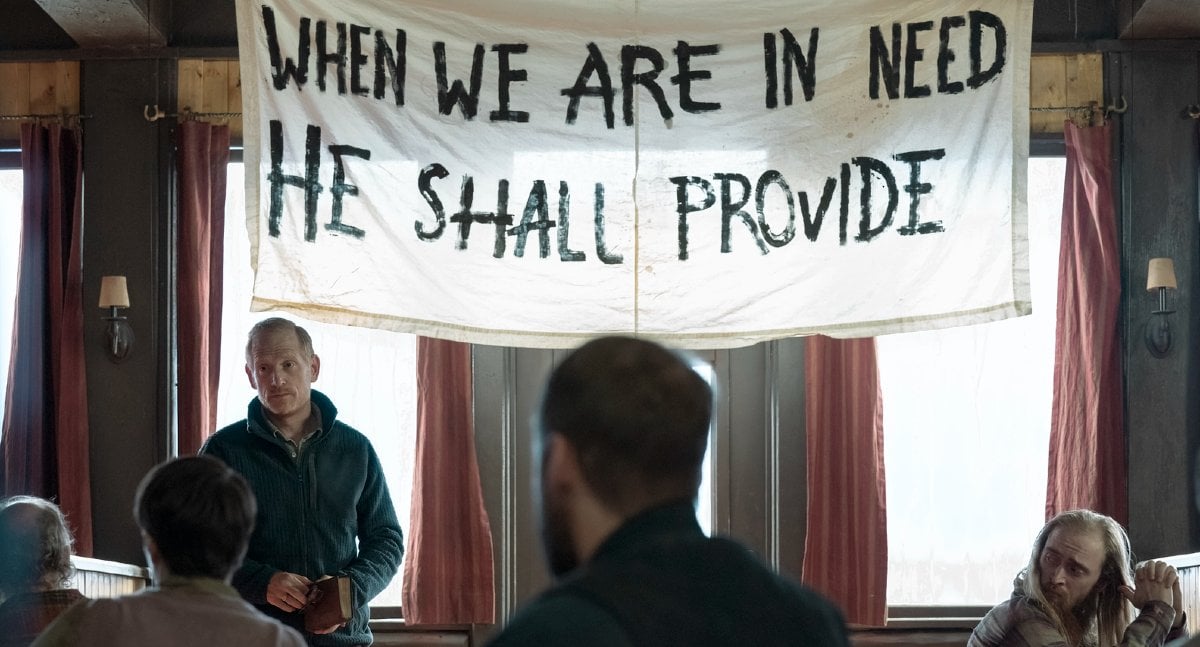HBO’s The Last of Us is a fictional story set in an apocalyptic America, but that doesn’t mean it can’t teach us lessons about our current world. Episode six showed many people that period products are important survival tools. More importantly, when Joel (Pedro Pascal) and Ellie (Bella Ramsey) stopped in Kansas City, we saw how one person’s villain can be another’s hero.
Right now, in the year 2023, American politicians are struggling with one of the country’s founding beliefs that government and religion should be separate. Sadly, even the Supreme Court has ruled in favor of allowing more religion to seep into public institutions. Watching The Last Us, we have seen several styles of micro-governments in action. FEDRA’s military dictatorship is obviously bad, but how have others done for their people? On The Last of Us podcast, creators Craig Mazin and Neil Druckmann discussed how two opposing governments fared in the series.
Jackson, a post-apocalyptic utopia in The Last of Us
In the episode “Kin,” Joel and Ellie finally make it to Jackson, Wyoming. Entering the walled city, they are shocked to find a clean, bustling, prosperous society. As they get a tour around town, they find out from Joel’s brother Tommy (Gabriel Luna) and his wife Maria (Rutina Wesley) that the community is based on communist principles. Maria may be the main one in charge, but she shares power with various men and women. Basically, everyone puts in what work they can do and they share the supplies as people need them. Maria herself traded some items to get Ellie some fresh clothes.
We find out that, in the time before Cordyceps fungus infected humans, Maria worked as an attorney. She based her life on laws and logic. When Jackson formed, and Maria became the one people followed, she extended that foundation of law to the society they built. Maybe the communist structure wouldn’t work in a larger scale group but, so far it has made Jackson a snow-covered paradise when compared to the FEDRA-run QZs.
The horrors at Silver Lake
After leaving Jackson, Joel and Ellie went to Colorado in search of the Fireflies’ research center. Instead of finding the Fireflies, they stumbled across a sad society of survivors at a former resort called Silver Lake. Led by a man named David (Scott Shepard), the community is barely hanging on. Supplies and morale are very low. Just looking at the drab expressions and low energy of the group makes it clear: They are suffering through a tough winter.
From the first time we see David, we know he is a man of God. He reads a passage from the Bible to help his grieving flock. David runs their community as a theocracy, based on religion, with him as the patriarchal figure in charge of the rest. He alone provides comfort and leadership for the people of Silver Lake. When necessary, he also is the one to hand out the punishments. It is patriarchy at its worst.
Communism vs. Theocracy in The Last of Us
What makes the two communities, and their successes, so different? During The Last of Us podcast, Mazin and Druckmann said part of it is the sheer bad luck of settling in Silver Lake. As the creators pointed out, the area was probably great in the spring and summer, as it used to be a resort. When winter set in, however, the game left, and it got very cold. But some of the group’s failure may be because of their belief in an all-mighty paternal figure that would save them if things got too bad.
Mazin elaborated by saying: “I believe very strongly in the separation of church and state not only because it’s important to protect people who are of religious minorities, but because religion doesn’t do a good job of running a state.” He added theocracies don’t usually have backup plans if things go bad. Druckmann also pointed out that in most theocracies, the people in charge are the most un-Godly of everyone.
We see the worst of theocracy summed up with David. He is a terrible person who rules alone through fear and oppression while pretending to be a loving father figure. Besides, he has no actual plan or direction for the people depending on him. At multiple points during the episode, he mentions his belief that “everything happens for a reason,” meaning he has never really thought about how his group will realistically survive. As we saw, they are not doing very well. They are literally eating each other.
Jackson, however, is run by a group of people where everyone has input. Through Maria, they built Jackson “on a bedrock of law.” With law and logic, people tend to make not only solid plans, but also contingency plans. These methods have helped Jackson thrive. The settlement is bigger with a higher population than Silver Lake, and they are doing substantially better. Even in the winter, they have plenty of food and other basics. Plus, they have perks like Christmas trees and movie nights. Now, I’m not saying theocracies will always lead to cannibalism, but maybe we should play it safe and steer clear of them altogether.
(featured image: HBO)









Published: Mar 10, 2023 06:13 am